It is in summer and especially in tropical countries that the greatest number of these diseases manifest themselves, such as yellow fever, dengue or Zika, among others. In these areas, although there is always the need for preventive care and behaviour against these diseases (such as the elimination of mosquitoes in homes, the use of repellents, planning programmes that allow nutritional support, contributing to greater body strength and resistance, vaccination programmes at community level and some vaccines for neglected tropical diseases), it is essential to pay greater attention to the most vulnerable people (the elderly, young children and pregnant women) who may suffer from these diseases in a more critical way, to the various symptoms that may arise and seek immediate medical help.
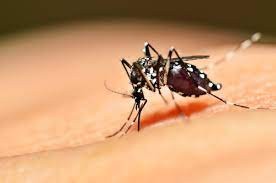
It is known that the so-called “tropical” diseases were already referred to in medical documents in the 19th century. This designation was established as the microorganisms causing these diseases and how they spread were identified.
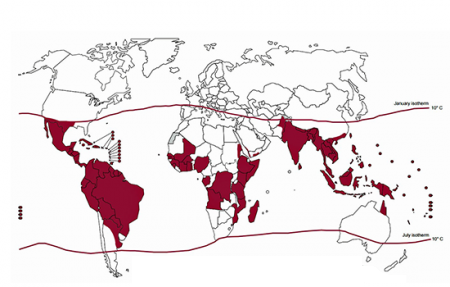
Over the centuries of colonizing expansion carried out by several countries, such as the United States of America, France or England, mostly directed to areas of the Pacific Ocean and the Caribbean, hitherto unknown resources and foreign diseases were discovered.
As these new colonies were located in the tropics, the diseases found there were called “tropical diseases”.
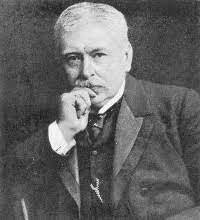
To improve the study of these diseases, some medical societies were founded, such as the London School of Hygiene and Tropical Medicine, founded by Patrick Manson, in 1899, and the Society of Tropical Medicine of Philadelphia, which was renamed in 1903 the American Society of Tropical Medicine. They both contributed to the assertion of the designation “tropical diseases”.

Some scientists from the tropics rejected this name because they considered that it could imply “some curse or biogeographic fatality”.
At the beginning of the 20th century, there were two opposing currents regarding the origin of "tropical diseases": those who stated that "they are diseases of colonized, exploited, miserable populations that happen to be concentrated in the tropics" and those who argued that "they are diseases of unhealthy, heat/related, dirty and prone to all forms of diseases regions foreign to the civilized world”.
However, today we know that the aforementioned “tropical diseases” are very likely the result of “underdevelopment, a late consequence of colonialism”, but also of “a certain tropical fatality, a consequence of the heterogeneity of geological and biological evolutions”. Science states that, in general, all diseases that people suffer from are characterized as tropical diseases (except for all other diseases that appeared later), since the human species originated in the tropics.

Tropical diseases are present in over a hundred countries, and affect about a billion human beings. They affect more severely the tropical regions, where the most unprotected and developing countries are concentrated, causing suffering in the populations and disabilities.
These pathologies progress due to two predominant factors: environmental and social. These infectious diseases are caused by viruses, bacteria and protozoa, which are found in tropical regions of the world. As they are hot and humid, they are an ideal habitat for their propagation compared to temperate climate zones, together with the lack of sanitation and access to fresh water, which predominate in poor countries.
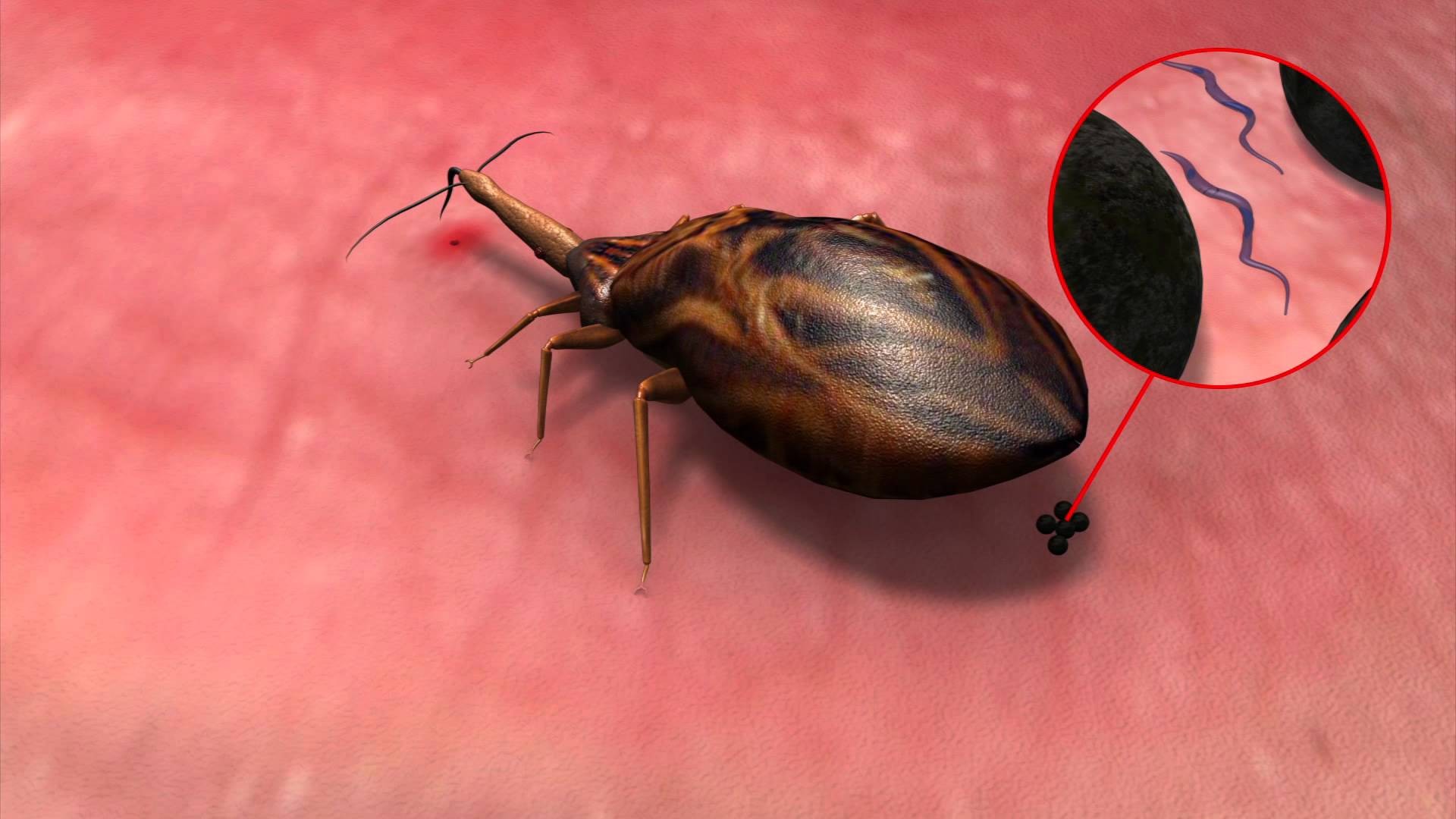
These situations cause precarious conditions both for people in terms of economic and social development (low level of schooling and intellectual attainment of children, human development, reduction of work and inequality among peers), as well as for the affected countries themselves.
The World Health Organization (WHO) refers to “tropical diseases” as “neglected diseases” because they have been allocated little investment. This lack of support for scientists led to little progress in research and possible resolutions.
These diseases are a group of endemic infectious diseases that manifest themselves in tropical regions, especially among poor populations in Africa, Asia and Latin America. Brazil is the country that brings together all the diseases on the WHO list of tropical diseases.
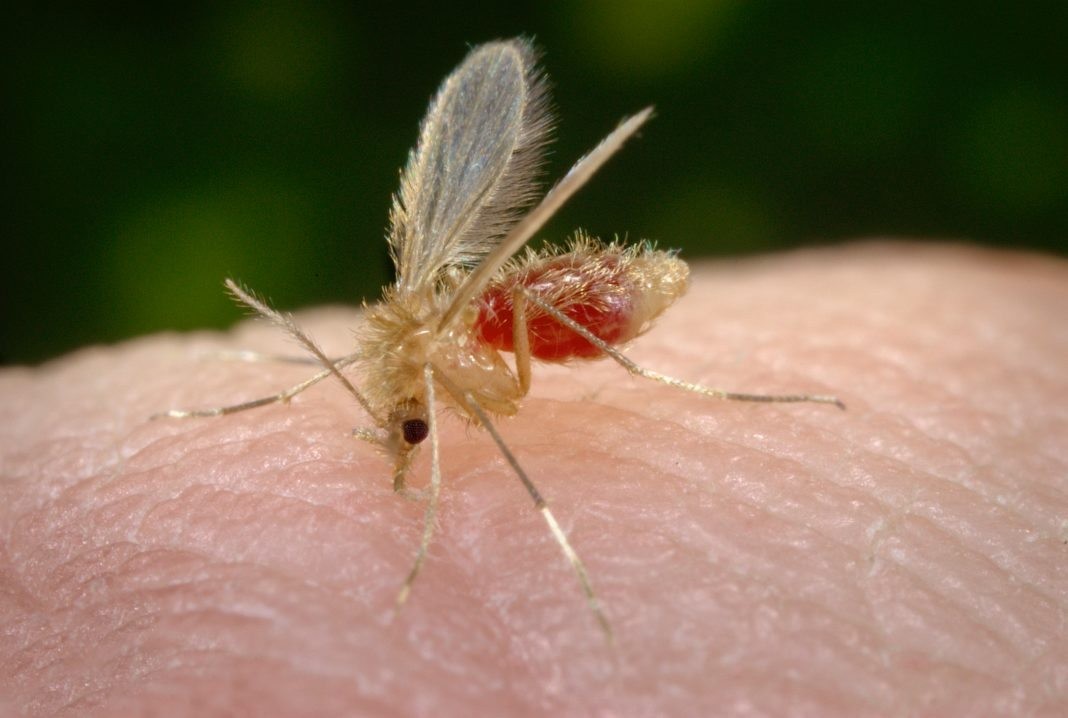
There are several neglected tropical diseases that make up this list, such as Chagas disease, dengue, African trypanosomiasis (sleeping sickness), leishmaniasis, leprosy, yaws, yellow fever and leptospirosis, among others. Tuberculosis and malaria, although not considered neglected diseases (according to the resources allocated to them), are part of this group because they affect several tropical regions.
However, there have been more frequent cases of tropical diseases in the USA. Health authorities point to climate change, increased travel to countries where these diseases are common and the lack of vaccines as causes for this problem.
In the last ten years, several steps have been taken to reduce the risks, both in the number of countries and in the number of people affected, as well as to eliminate at least one type of these diseases.

In 2012, with the London Declaration on Neglected Tropical Diseases, a programme was carried out so that by the year 2020 it would be possible to control, eliminate or eradicate ten of those diseases. However, the proposed goals were not achieved, and it was concluded that it was necessary to do more and better activities against Tropical Diseases.
On 30 January 2020, the World Day for Neglected Tropical Diseases was commemorated for the first time by more than 280 research institutions, companies and civil organizations, to alert to the urgency of joining efforts and funding in order to fight one of the biggest public health problems that has very serious consequences both socially and economically.
It has been found over the years that investment in research and development of products to combat these diseases has drastically decreased. According to the G-Finder 2019 report, the investment for 2018 was almost 10% lower than in 2009. In the current century, it appears that none of the drugs that have reached the pharmaceutical market in the meantime are indicated to combat any of the 20 neglected tropical diseases.

In 2018, Brazil presented more than 28,000 new cases of leprosy disease. According to the same report, between 2007 and 2017, funding fell by more than 40% in all areas and for this disease there was a 95% drop.
It is currently believed that about 1 to 1.7 billion people worldwide are affected by neglected tropical diseases, which do not always cause death. It is estimated that around 19 million patients affected by these diseases suffer from disability or premature death.
Recently, after a study was carried out with WHO member countries (agency partners, scientific community and academics), this organization suggested the Plan “Ending Negligence to Achieve Sustainable Development Goals”, composed of several actions and programmes to be carried out until 2030. This Plan aims to eliminate the suffering caused by this type of disease through the reduction of costs related to health care as well as the introduction of more efficient treatments.
In 1999, WHO Director-General Dr Gro Harlem Brundtland inaugurated a monument at the WHO headquarters in Geneva to mark the 25th anniversary of the Programme to fight river blindness on the African continent.
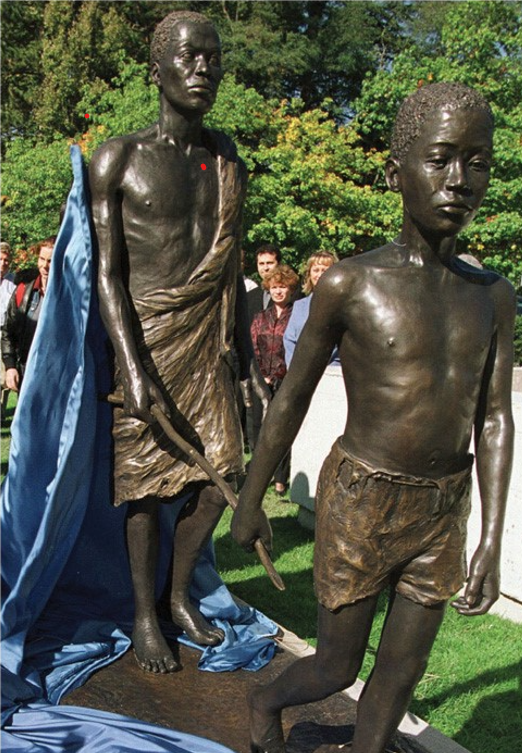
Therefore, by the year 2030, in order to reach the target it proposes (all areas classified as endemic to have full access to drinking water, sanitation and hygiene), the WHO suggests “the urgency of new paradigms and multilateral actions cooperation in education, science, health, and technology” so that there is a 90% reduction in the number of people affected by tropical diseases who need treatment; the extinction of diseases such as dracunculiasis and yaws, which affect the skin and bones; 75% reduction in disability adjusted for years of life associated with neglected tropical diseases such as leishmaniasis or dengue, among others; and that at least a hundred countries have an obligation to eliminate at least one of the tropical diseases.
This institution also proposes that after the completion of the Plan, data related to gender should be separated, as the vast majority of victims of tropical diseases are female.
Tedros Ghebreyesus, director general of the WHO, said in relation to neglected tropical diseases and their eradication, that "to end the scourge of neglected tropical diseases, it is urgent to change the current approach and inject new energy into prevention and treatment".
References:
- Conheça as principais doenças tropicais negligenciadas. Available at: on http://www.fiocruz.br/ioc/cgi/cgilua.exe/sys/start.htm?infoid=1585&sid=32.[ Retrieved on 12-07-2021]
- Doenças tropicais. Available at: Doenças tropicais - doenças negligenciadas - InfoEscola. [Retrieved on 12-07-2021]
- A luta contra as doenças tropicais negligenciadas continua. Available at: https://saude.abril.com.br/blog/com-a-palavra/a-luta-contra-as-doencas-tropicais-negligenciadas-continua/. [Retrieved on 15-07-2021]
- WHO unveils 10-Year Plan to End Neglected Tropical Diseases. Available at: https://news.un.org/pt/story/2021/02/1740092. [Retrieved on 12-07-2021]
- What are tropical diseases. Available at: https://www.news-medical.net/health/What-are-Tropical-Diseases-(Portuguese).aspx. [Retrieved on 12-07-2021]
Lurdes Barata
Library and Information Area
Editorial Team


